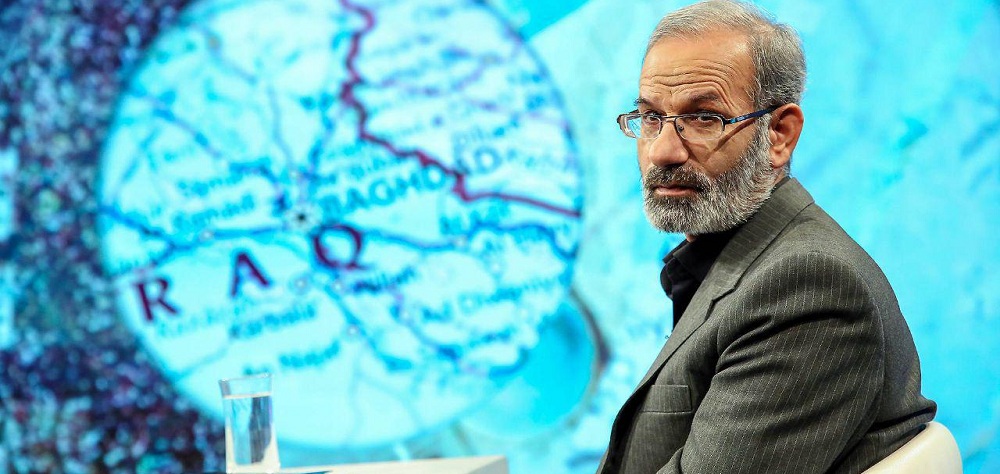Alwaght- Two months after eruption of the anti-government protests in Iraq that caused a serious political crisis in the country, the crisis-torn country's Prime Minister Adel Abdul Mahdi in a surprise move has presented his resignation to the parliament, ignoring a 45-day chance by the political parties set for him to adopt the reforms his government and the parliament enacted.
His statement read that his stepping down comes with regard to the current conditions and to prevent continuous violence and a failure to control the situation the country is experiencing. He asked the parliament to decide on forming a new government. Alwaght has arranged an interview with Sadollah Zarei, an expert on international affairs, to throw light on the new development in Iraq.
Asked why Abdul Mahdi resigned despite a 45-day chance the parliament gave him to improve the situation, Mr Zarei said that the resignation of the PM was directly related to a recent statement issued by grand Ayatollah Sayyed Ali al-Sistani. In his statement, the top cleric made some points one of which tacitly called for the formation of a new government. So, Abdul Mahdi handed over his resignation to the parliament in obedience to the statement of the clergy. “He decided his government’s work was finished,” Mr Zarei added.
When asked about the influence of the resignation on the present political conditions of the country, Mr Zarei replied that Iraq is currently in a highly sensitive situation and the resignation can either carry an opportunity or a threat. His resignation can present an opportunity for the country especially the Shiites and the political structure should the parliament, the political parties, and the Shiite leaders understand the sensitivity of the circumstances. If they have a sensitivity to get things right, the resignation can present a chance for reaching a PM more agreed upon especially that since the beginning, some Shiite sides raised criticism over Abdul Mahdi’s premiership.
“But if the political sides prioritize their party agenda and demands and follow a path they in the past followed, the formation of a new government could be delayed for months, posing risk to Iraq and its political structure. I think that an extremely sensitive dilemma is in front of the country: Keeping the independence through repelling the foreign meddling marked by the American and some Arab countries and keeping the independence through diligence and saving the political structure.”
Alwaght asked if it is likely that the parliament rejects the resignation. The Iranian political expert pointed that according to the Iraqi constitution, the PM resigns when he is in practice off the job and that there is no need for the parliament to make an approval. To be precise, installing a PM in Iraq is the parliament’s task and the PM requires a vote of confidence to get the job. But his resignation does not require approval from the parliament and the PM can simply step down and his abandoning the job is not raised in the parliament sessions. The parliament can impeach and oust the PM, however.
Since his resignation, Mr Zarei noted, the PM leads a caretaker cabinet. The parliament has two weeks to choose a successor from the majority block. This process started since the moment Abdul Mahdi announced his resignation.
Mr Zarei was asked about the role of the foreign actors in the developments that led to Abdul Mahdi’s resignation. He noted that the role of the foreign parties should be considered here. He went on that the resignation was a personal decision and if the top Shiite cleric did not publish his recent statement, the PM would have continued his task as the cabinet head. “In recent days, we saw the government’s initiatives in dealing with the rioters and stabilizing the security conditions. We can say that Iraq relatively passed the critical situation. But the US, Saudi Arabia, and the UAE over the past few days distributed money to buy mercenaries and thus forge a new situation. The attacks on religious sites were part of this scenario. Even there were fears about attacks on the houses of the clergy.”
He continued that the foreign actors have created a new situation. Ayatollah Sistani decided that a change of the government is expedient. So, the PM resigned in compliance with Ayatollah Sistani, not under the US pressure. “We hope that the negotiations of the political and Shiite leaders move fast and not be a long process."
Mr Zarei also commented on the effects of the PM’s resignation on the popular protests and the tumultuous situation, saying that he thinks that if the parliament fails to take the initiative, the quitting of the office by the PM can compound the protest and riots. But should the parliament hold the situation under control, the resignation will be a fluent process moving via its normal path and therefore the situation will not go worse.”
“A point needs to be taken into consideration. Picking of the new PM should put an end to the riots. To put it differently, today’s Iraq needs a strong PM not one wavering in implementing the decisions and policies.”



























